Refugee-made backpacks are produced from recycled life vests and boats
Two Dutch designers have worked with refugees to create a rucksack from discarded boats and life vests.
Designed to offer the most possible space using the minimum amount of material, the 21-litre BAG2WORK bags are made from one square metre of boat rubber and four life-vest straps, which cross over the rucksack to hold it closed.
Designers Didi Aaslund and Floor Nagler – working under the name No Mad Makers – are currently crowdfunding the production of the bags through Kickstarter.
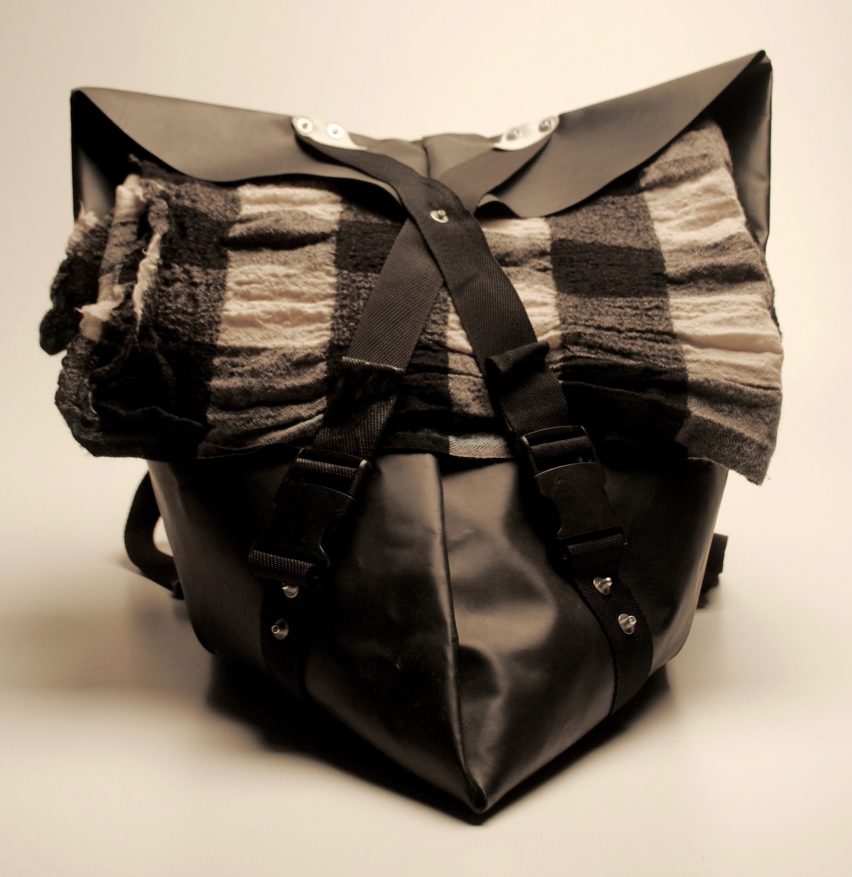
They came up with the idea after visiting the Greek island of Lesbos and finding beaches strewn with boats and vests left behind by refugees.
Working together with refugees, the pair set up a workshop on the island assembling bags from the discarded rubber.
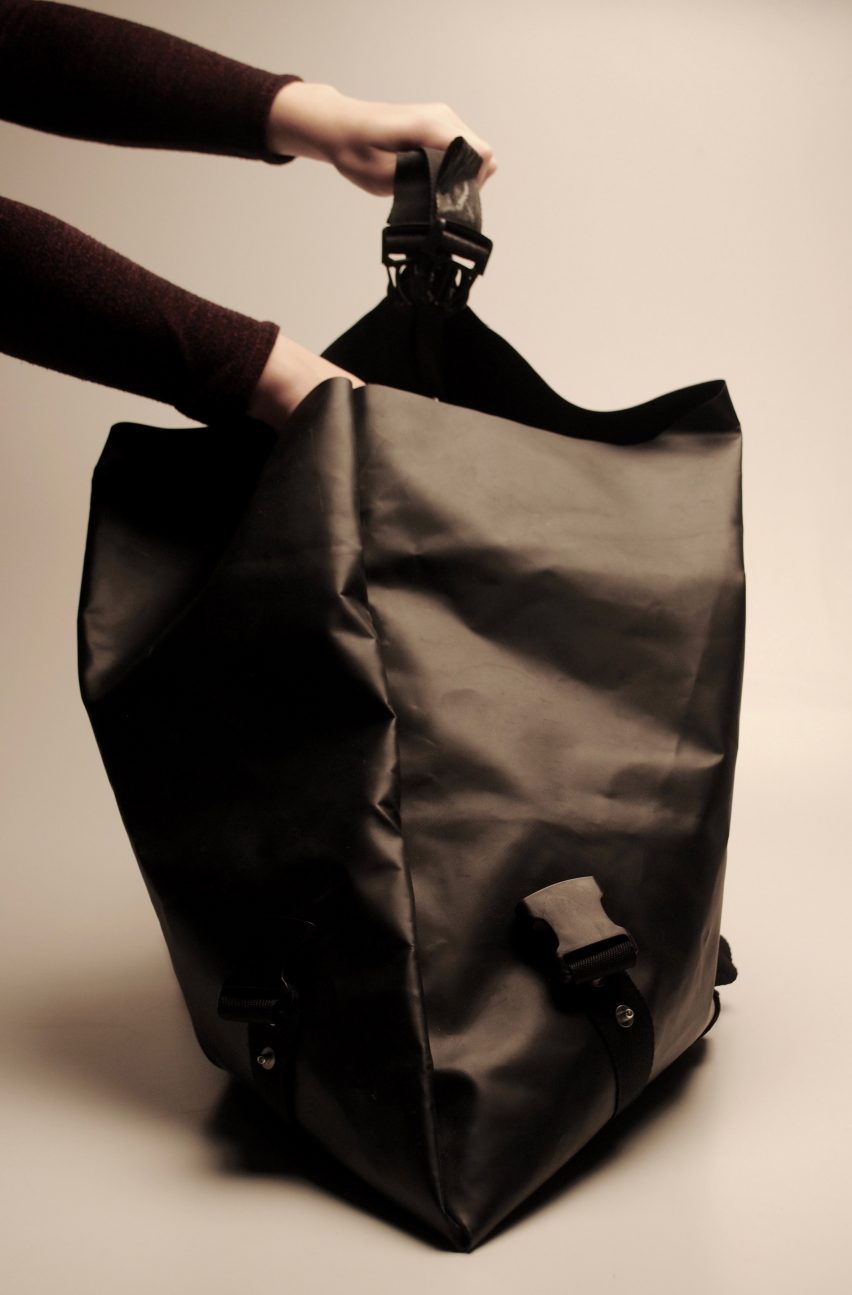
Without electricity or budget for expensive tools, they had to improvise, using rivet guns to put the backpacks together.
This allows workers to join the stiff boat rubber and assemble bags quickly – with each one taking around an hour. The "fortune cookie-like shape" lets the backpack stand unsupported.
The pair are currently raising money to transport the leftover materials from Greece to their home city of Amsterdam, where many newly arrived refugees struggle to find employment. They hope to open a production facility and pay refugees to create the backpacks.
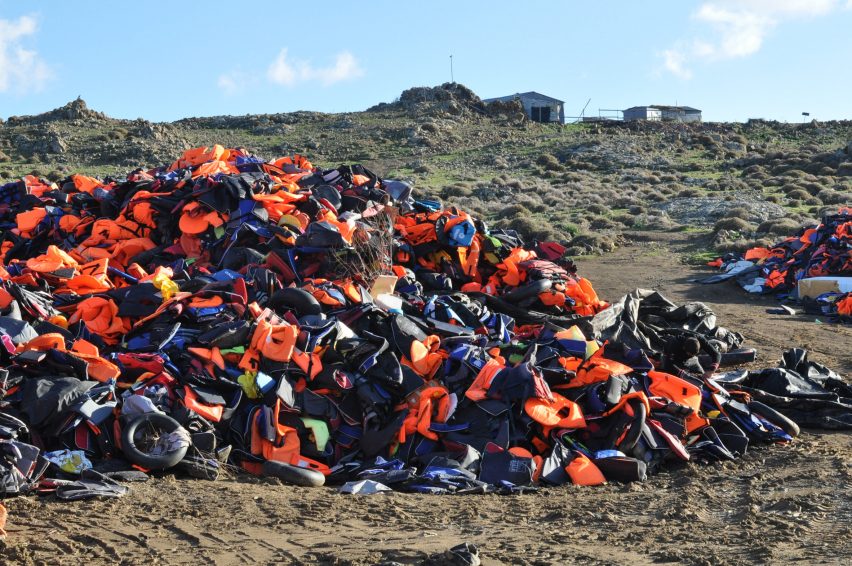
"BAG2WORK is a statement," said the duo. "If we want newcomers to integrate, we have to get them back to work."
"It could give the refugees some autonomy back," they added. "It would give the discarded boats and life vests from Greek beaches a worthy second life. And it would give you the opportunity to carry a positive story about the refugee crisis with you, wherever you go."
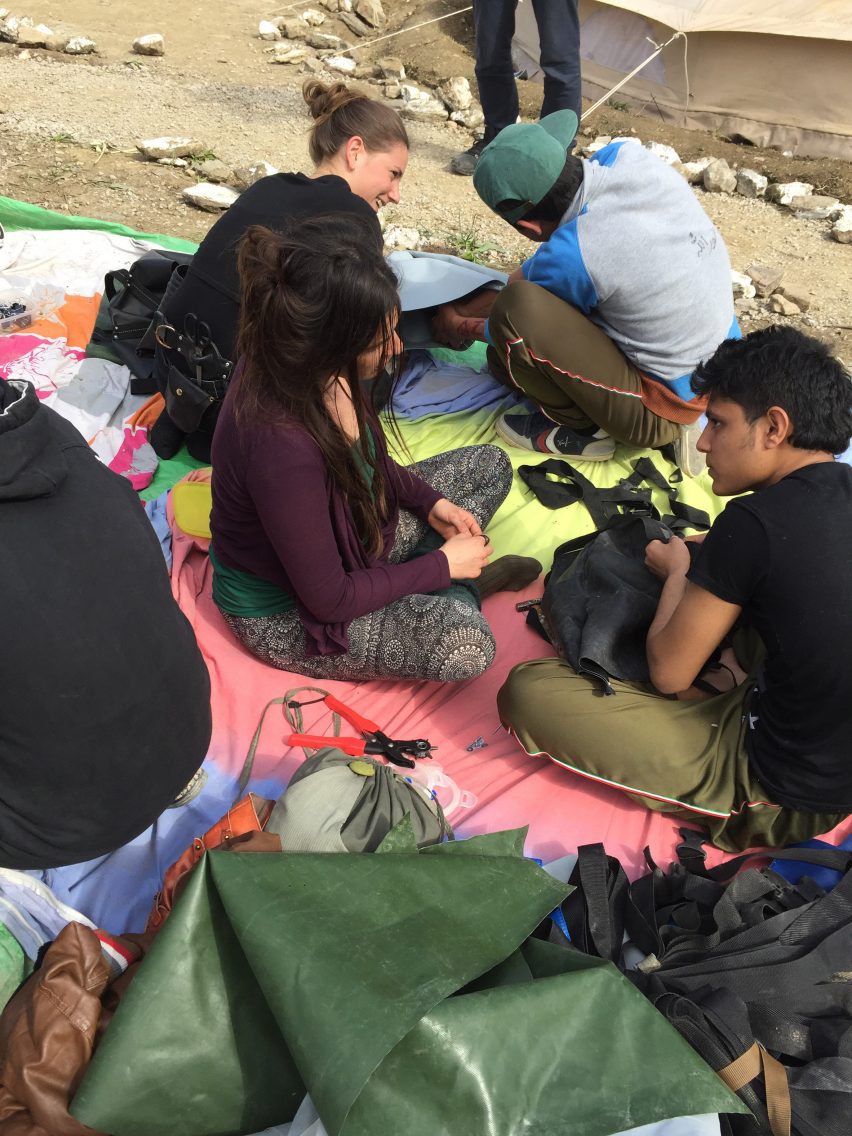
A group of students from London's Royal College of Art have also sought to help refugees, with a prototype coat that transforms into a tent or sleeping bag.
Meanwhile, refugees in Berlin have been granted the rights to reproduce and sell Enzo Mari's Autoprogettazione furniture.
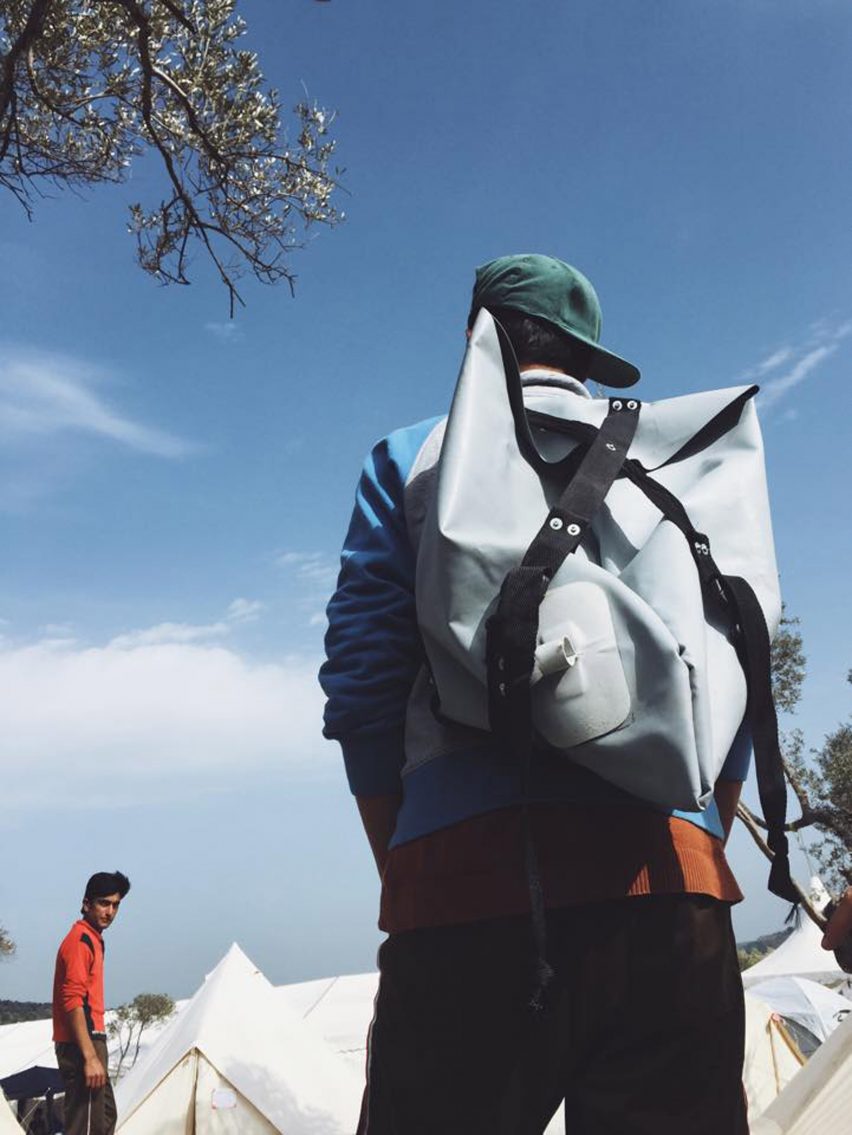
In an opinion column for Dezeen, Richard van der Laken called on designers to address the crisis by using their skills to improve the situation.
BAG2WORK was nominated for a New Material Award and exhibited at Dutch Design Week, which took place from 22 to 30 October. At the time of writing, Kickstarter backers had pledged €8,533 of a €50,000 goal.